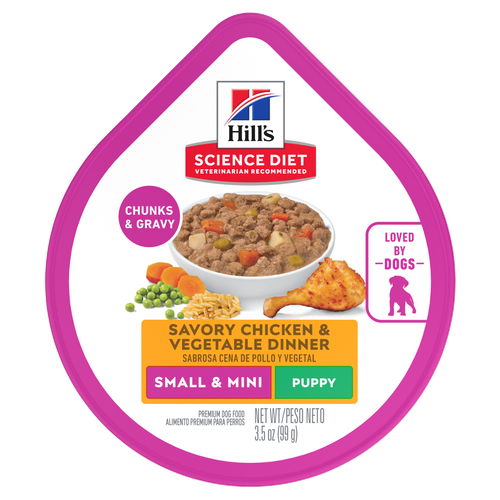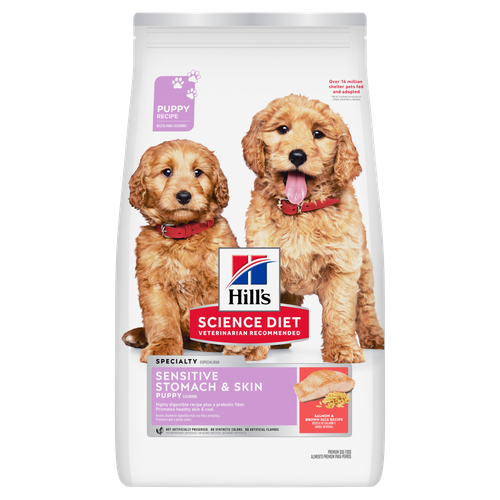Hill's Puppy Food: Nutrition for Their First Years
Science did that.
Hill's Puppy Food: Nutrition for Their First Years
Science did that.


Support the gut microbiome for lifelong health with Hill’s ActivBiome+
Every pet has a unique microbiome — an internal ecosystem composed of millions of bacteria and other microorganisms — that can influence every part of the body.
ActivBiome+ is a breakthrough blend of prebiotic fibers to support the gut microbiome and digestive system.
Support the gut microbiome for lifelong health with Hill’s ActivBiome+
Every pet has a unique microbiome — an internal ecosystem composed of millions of bacteria and other microorganisms — that can influence every part of the body.
ActivBiome+ is a breakthrough blend of prebiotic fibers to support the gut microbiome and digestive system.



Puppy care for their best first year
How to Read Your Puppy’s Body Language
Understanding puppy body language will make it easier to communicate with your pup.
Puppy care for their best first year
How to Read Your Puppy’s Body Language
Understanding puppy body language will make it easier to communicate with your pup.


Get your puppy vaccinated
Vaccinating your puppy can help to protect them from several major diseases.

Find the right puppy food for your dog’s breed size
Small breed puppies (under 25 lbs when adult) have different nutrition needs compared to large breed puppies (greater than 55 lbs when adult). Make sure to find a dog food designed for their rate of growth.
Find the right puppy food for your dog’s breed size
Small breed puppies (under 25 lbs when adult) have different nutrition needs compared to large breed puppies (greater than 55 lbs when adult). Make sure to find a dog food designed for their rate of growth.


















